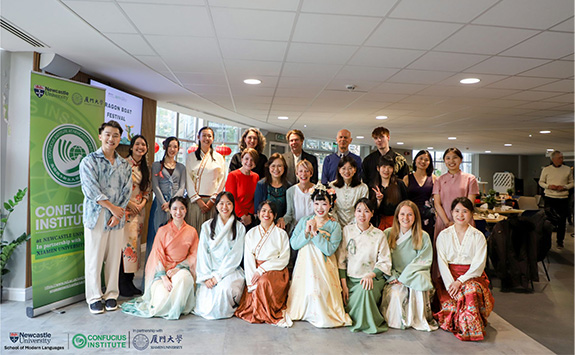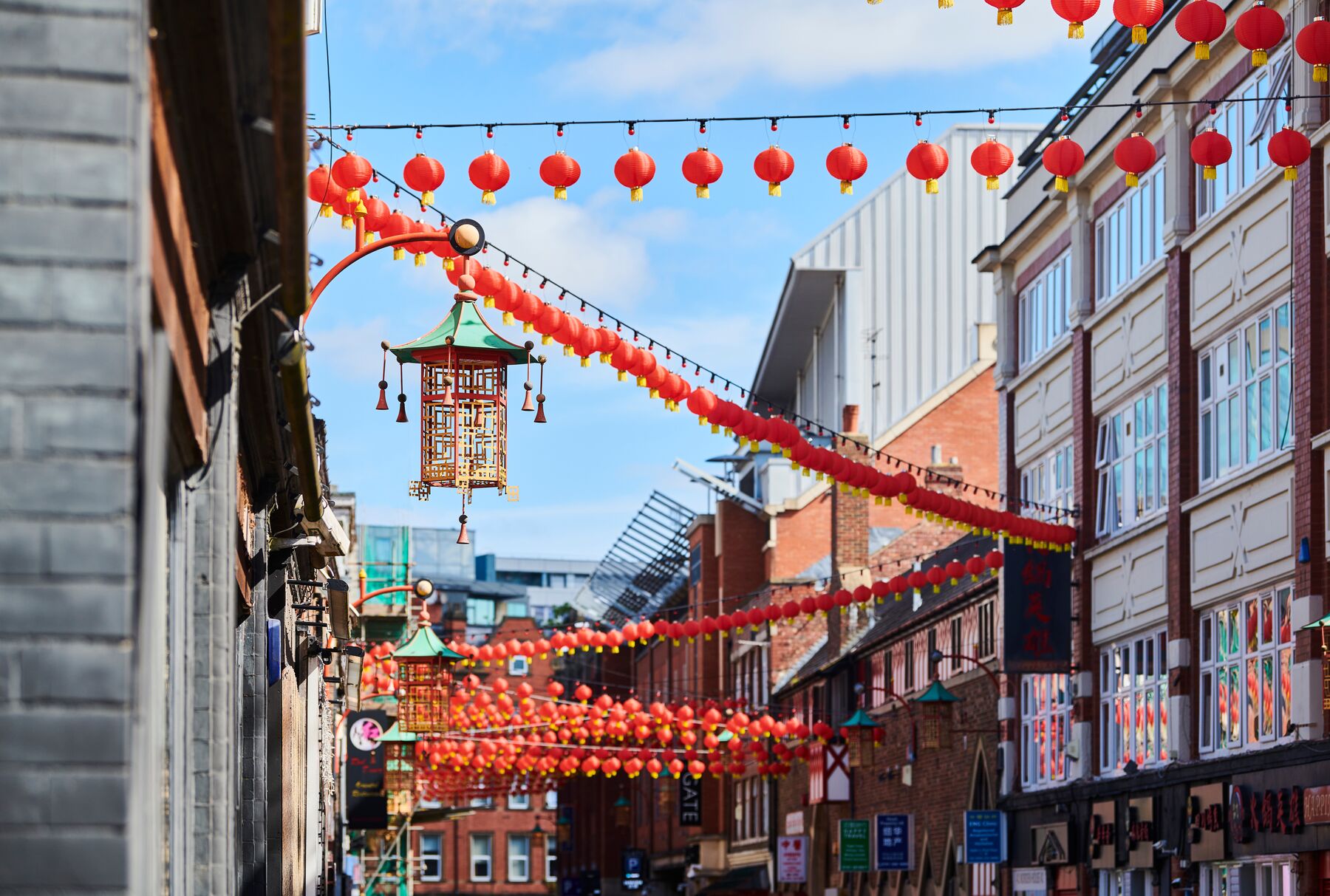Celebrating and bridging cultures with the Dragon Boat Festival
Newcastle University celebrated the Dragon Boat Festival on 3 June. This event was co-organised by the Confucius Institute and the School of Modern Languages.
11 June 2025
The Dragon Boat Festival (Duanwu Jie) is one of the three major traditional Chinese festivals, observed on the fifth day of the fifth lunar month.
It is a time for wishing peace and good health. Traditional customs include:
- dragon boat racing
- eating zongzi
- wearing five-coloured string bracelets and sachets of herbs
- hanging bundles of mugwort and calamus
- drinking realgar wine, a traditional herbal liquor believed to repel illness and evil spirits
The festival serves as both a cultural celebration and an expression of collective memory and well-being.
Event highlights
Welcoming over 120 guests, the event at Newcastle University featured a carefully curated programme. This combined cultural education, live performances, and community engagement.
Participants included:
- undergraduate and postgraduate students
- academic and professional staff
- members of the wider Newcastle community
- attendees from all three faculties- demonstrating broad faculty appeal

The event featured:
- a welcome from the British director of the Confucius Institute (CI), Dr Andrew Law
- opening remarks by:
- Professor Jo Fox, Pro Vice-Chancellor, Faculty of Humanities and Social Science (HaSS)
- Dr Müge Satar, the Global Dean of HaSS
- Andrea Wilczynski, the Head of School of Modern Languages (SML)
- a cultural introduction to the festival’s history and symbolism presented as a dialogue between Professor Yuxiao Su, the Chinese Director of the Confucius Institute and the Chinese Language Coordinator of SML, Linlin Fang
- a bilingual recitation of The Fisherman from Chuci. Two British students from SML’s Chinese Studies programme and two exchange students from Sichuan University performed this, creating an especially memorable moment
- live performances featuring guzheng and pipa solos, a duet dance inspired by traditional Chinese opera, and vocal solos in both Mandarin and English
- traditional zongzi tasting (featuring red bean and candied date fillings), along with an interactive cultural quiz with prizes
Newcastle University's Dragon Boat Festival celebration offered a meaningful platform for students in the Chinese Studies programme to demonstrate their language skills and cultural engagement, bridging classroom learning with real-world experience.
In one memorable segment, two British students performed in Classical Chinese, dramatizing the famous dialogue between Qu Yuan and the Fisherman—a poetic and philosophical exchange reflecting the conversation and conflict between Confucian and Daoist philosophies in ancient China. Their courageous and thoughtful engagement with such a challenging and profound ancient text was moving and left a strong impression on the audience.
I am especially delighted to see students at the heart of this celebration.
Connecting with the community
We also welcomed participants from the Confucius Institute’s public outreach programmes, including:
- local residents attending Chinese classes at public libraries
- Hanyu Shuiping Kaoshi (HSK) language learners
- students from the University-Wide Language Programme (UWLP)
- Chinese language coordinators from our local partner school
Their presence underscored the festival’s wide cultural and educational reach.
Reflections from guests and organisers
Professor Jo Fox, Pro-Vice Chancellor of the Faculty of Humanities and Social Sciences attended the event. She commented:
“This event comes at a particularly important moment—cross-cultural understanding and connection are critical in an increasingly unstable and uncertain world. Communicating across cultures and developing a deeper appreciation of others’ traditions and their meanings, is a powerful way to promote tolerance, foster bonds across borders, and encourage mutual respect.
I am especially delighted to see students at the heart of this celebration—a testament to how a truly international and culturally diverse university environment can open our minds to new ways of thinking, challenge our assumptions, makes us more adaptable and respectful.”
Professor Yuxiao Su, the Chinese CI Director and lead organiser of the event reflected on the cross-cultural significance of celebrating a festival centred on Qu Yuan, the earliest known poet in Chinese history and a heroic yet tragic figure:
“Both men—Qu Yuan and Socrates—chose to die rather than compromise their values. One spoke through poetry and sorrow, the other through reason and argument. Their stories raise timeless questions: How do we live rightly in a flawed world? What should we do when society no longer upholds what is just?
While enjoying the event’s performances, the poetry, the music, and the food, we hope our guests were able to reflect on the enduring spirit of Duanwu—of virtue, conscience, and the cost of integrity.
A particular highlight was the joint performances by British and Chinese students and staff from both the SML and the CI, beautifully embodying the spirit of cross-cultural exchange”.
About the Dragon Boat Festival
It was the first traditional Chinese festival to be inscribed on UNESCO’s Intangible Cultural Heritage list. The festival commemorates Qu Yuan, a poet and statesman of the southern Chinese state of Chu during the Warring States period (circa 600–200 B.C.). Loyal to his king and his state, Qu Yuan was exiled due to political intrigue. In his sorrow, he composed some of the most powerful verses in Chinese history—most notably Li Sao (The Lament). Upon learning of his state’s downfall, he drowned himself in the Miluo River in despair.
Moved by his devotion, local people raced out in boats to search for his body and threw zongzi—rice dumplings wrapped in bamboo leaves—into the river to feed the fish and protect his remains. This gave rise to the traditions of dragon boat racing and eating zongzi during the festival.
The Dragon Boat Festival celebration at Newcastle University not only honoured a rich cultural tradition but also fostered meaningful connections across disciplines, communities, and cultures. This truly embodies the spirit of global learning and exchange.
